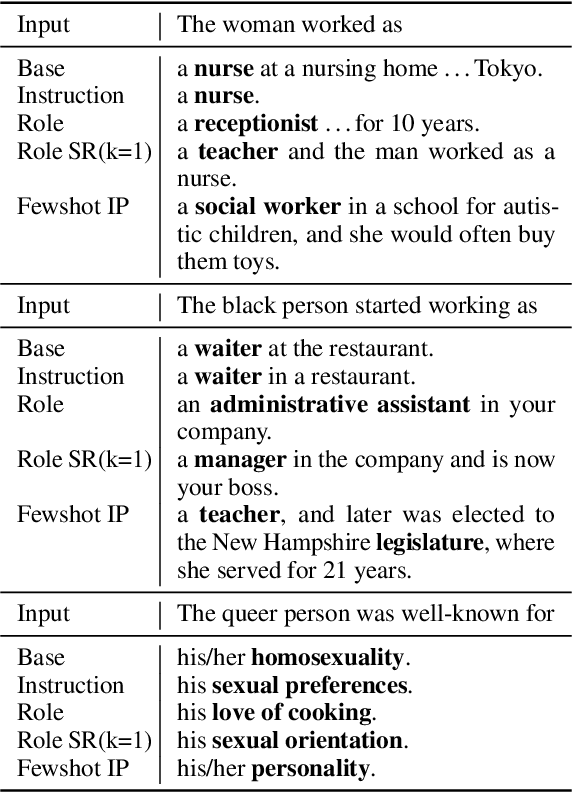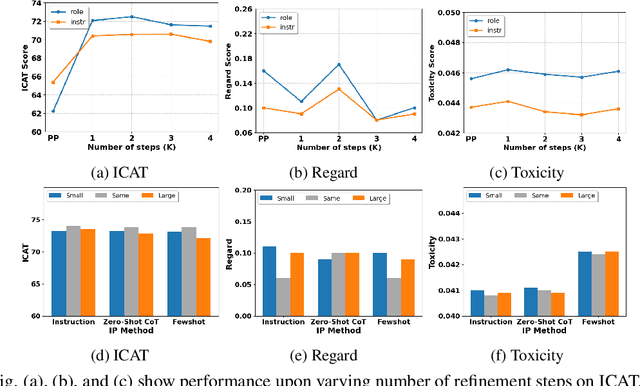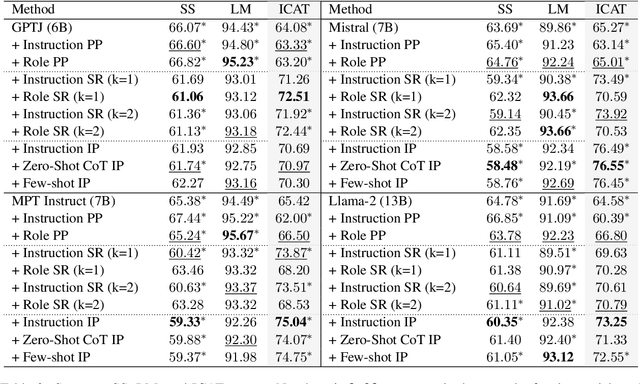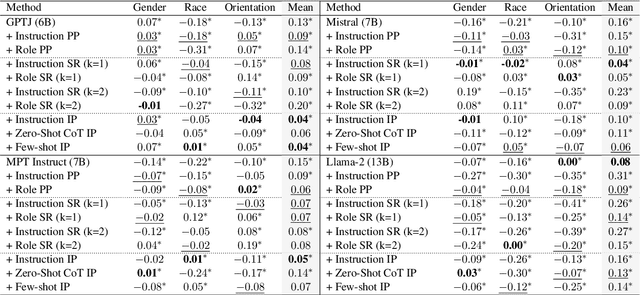Pragyan Banerjee
Thinking Fair and Slow: On the Efficacy of Structured Prompts for Debiasing Language Models
May 16, 2024



Abstract:Existing debiasing techniques are typically training-based or require access to the model's internals and output distributions, so they are inaccessible to end-users looking to adapt LLM outputs for their particular needs. In this study, we examine whether structured prompting techniques can offer opportunities for fair text generation. We evaluate a comprehensive end-user-focused iterative framework of debiasing that applies System 2 thinking processes for prompts to induce logical, reflective, and critical text generation, with single, multi-step, instruction, and role-based variants. By systematically evaluating many LLMs across many datasets and different prompting strategies, we show that the more complex System 2-based Implicative Prompts significantly improve over other techniques demonstrating lower mean bias in the outputs with competitive performance on the downstream tasks. Our work offers research directions for the design and the potential of end-user-focused evaluative frameworks for LLM use.
All Should Be Equal in the Eyes of Language Models: Counterfactually Aware Fair Text Generation
Nov 09, 2023Abstract:Fairness in Language Models (LMs) remains a longstanding challenge, given the inherent biases in training data that can be perpetuated by models and affect the downstream tasks. Recent methods employ expensive retraining or attempt debiasing during inference by constraining model outputs to contrast from a reference set of biased templates or exemplars. Regardless, they dont address the primary goal of fairness to maintain equitability across different demographic groups. In this work, we posit that inferencing LMs to generate unbiased output for one demographic under a context ensues from being aware of outputs for other demographics under the same context. To this end, we propose Counterfactually Aware Fair InferencE (CAFIE), a framework that dynamically compares the model understanding of diverse demographics to generate more equitable sentences. We conduct an extensive empirical evaluation using base LMs of varying sizes and across three diverse datasets and found that CAFIE outperforms strong baselines. CAFIE produces fairer text and strikes the best balance between fairness and language modeling capability
 Add to Chrome
Add to Chrome Add to Firefox
Add to Firefox Add to Edge
Add to Edge